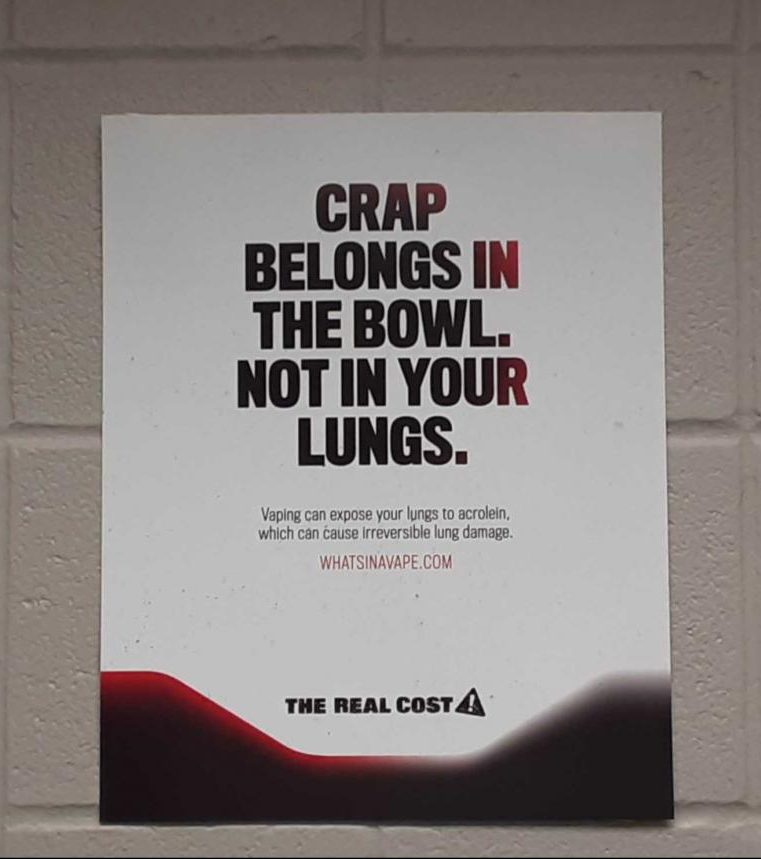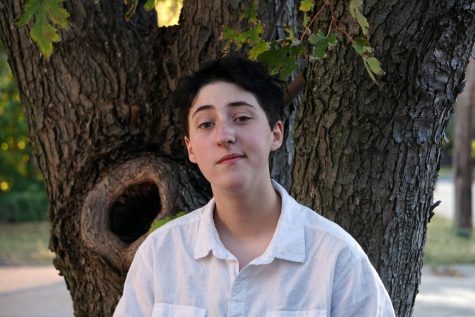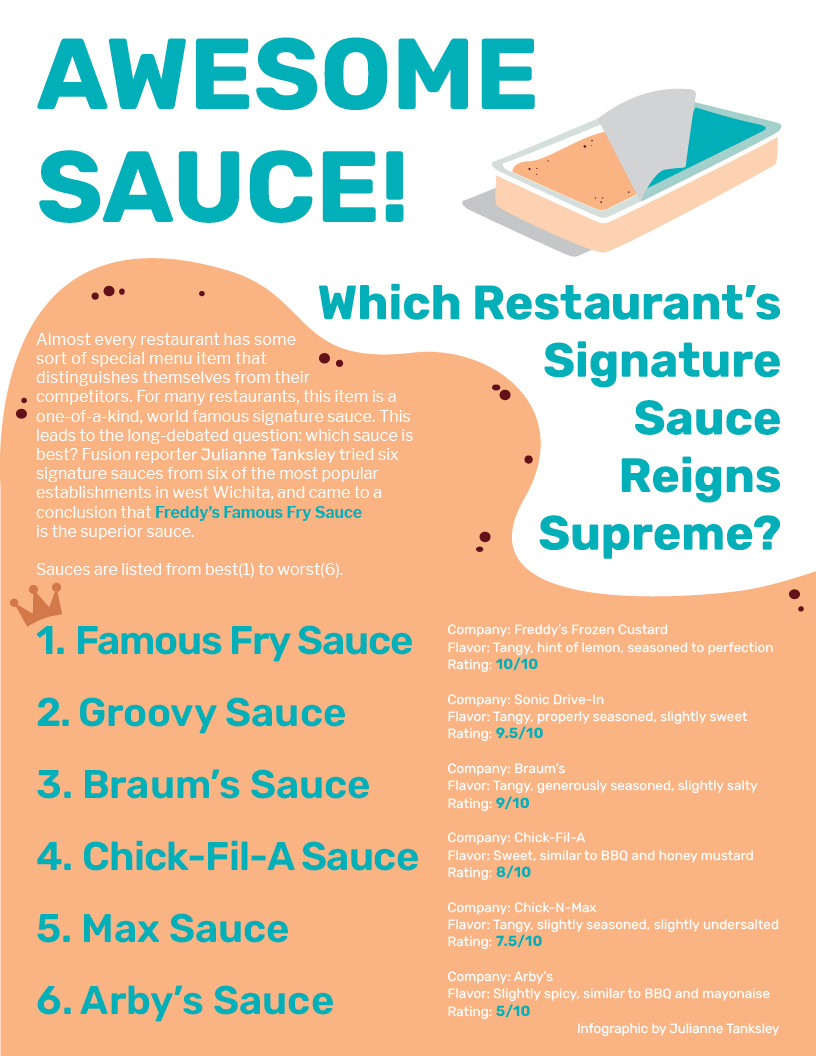Validating the Effects of Vaping
Vaping and the usage of electronic cigarettes have gotten popular within the US and in our high schools, but at what cost to our own bodies?
Recently posters like this one have found a new home within the hallways of our school, advertising against the use of e-cigarettes and alternative vaping options.
September 25, 2019
Walking around the hallways of the Maize South schools, it is easy to find anti e-cigarette posters. Just within the last month, there were new posters hung in the hallway, all of them advertising to students to not used e-cigarettes, regardless if they have nicotine or not.
While vaping and e-cigarettes has been a hot-button topic within the school, there hasn’t been much discussion about the topic within individual classrooms or specific guidance from teachers to their own students.
Katy Carter, Head nurse at Maize South, believes that there should be substantially more education within the school. She also believes that the school needs to educate on topics like smoking and vaping, along with the effects of such habits. Most importantly, Carter believes that it shouldn’t be only just teachers speaking to students, she believes that there should also be peer-to-peer conversation about the grave risks of vaping among our teen population.
As of September 19, 2019, the Central for Disease Control and Prevention, the CDC, has reported seven confirmed deaths within six states. Along with this there has been 530 confirmed lung illnesses or injury caused by vape or JUUL. So far, two thirds of those sick or injured are within 18 to 34, which is about 64%. Nearly three fourths of those cases are male.
According to the CDC, about 1 in 5 (20.8%) high school students have used some sort of e-cigarette. E-cigarettes can come with or without nicotine, but that is only one thing they take out of the vapor. The contents of JUULs and some other e-cigarettes can have other cancer causing and questionable things within them still, even without the nicotine.
The CDC reports that the e-cigarette aerosol is not just water vapor and besides the potential of nicotine, there can be ultra-fine particles that can be inhaled deep into the lungs, flavoring such as diacetyl, which is linked to serious lung disease and other cancer-causing chemicals with heavy metals such as tin, nickel and lead.
As it is known, some of the Maize South student body vapes or JUULs, even with the administration and teachers trying to prevent it as much as they can. The Bullseye had the chance to interview one of these students, to see what they think and their story for why they use E-cigarrettes.
“Vapes are used as a substitute to get off of cigarettes.” They mentioned as they were explaining why e-cigarettes aren’t as bad as people are saying that they are.
“I don’t JUUL very often, it’s only when I want to feel a little buzzed. I like it for the buzz without the high.”
When asked about the current deaths caused by lung illnesses associated by the use of electronic cigarette products, the student commented, “The only reason why people are dying because they are actually ingesting the liquid instead of vapor, and secondly they go through four packs a day which is very dangerous. You are only supposed to be doing maybe half a pod a day.”
For this student, it is little concern as to their vaping because they are not addicted to the substance.
“I am not going at it every day. Because that’s how people get addicted, that is how they overdo it too much, and you need to know your limit.”
“I am not concerned about the rising deaths of people vaping. So far, there has been about six deaths from vaping or JUULing. Nearly 50,000 die of cigarettes a year. I don’t believe we can gather enough information from the six deaths, especially when compared to the 50,000 from cigarette users.”
Yet, other students within our school do believe that vaping can be harmful, but really comes with no true purpose, even when the media and news organizations claim that vaping can help an addicted cigarette smoker switch to a different, less harmful substance.
Jack Byrne, 11, said that if he found one of his friends vaping he would discourage it. Byrne also believes that he can’t do much to affect the amount of JUULing within the school, without getting another student in trouble.
“I wouldn’t know if I would feel comfortable with going to talk to a teacher about it, because I wouldn’t want to get one of my friends in trouble. There’s not a lot you can do as one person, because as a student you are kind of outnumbered as far as that goes,” said Byrne.
He also mentions that we as a society don’t know the long term effects, as it is a newer drug that’s recently streaming and popular within the team community.
“The problem with JUULing is that we don’t see the long term effects of it now. People don’t smoke cigarettes because they see the cancers and the heart diseases and all the other things that comes from it. Students just do it because they think there isn’t any consequence but there is. We just haven’t found it yet.”
Junior Saylia McKibbin wants to pursue a medical degree in her future and has taken several Health Science courses. Within her Health Science 2 course, the topic of vaping was discussed briefly and she affirms that the news coverage depicts vaping as very harmful to students.
“Just from what the things that have happened recently, it’s not good for your body, especially for your lungs. It just isn’t good,” said McKibbin.






